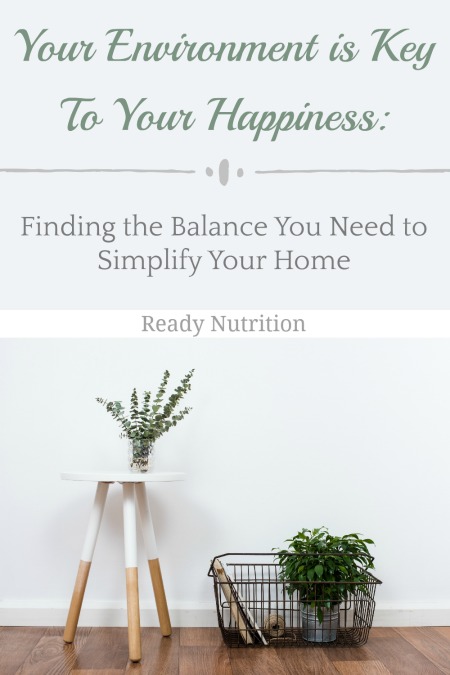Environmental wellness has become increasingly important at this stage of humanity as clutter and consumerism increasingly permeates our culture. It’s important to live a life that’s sustainable both for ourselves and our Earth, so we can pass along a less stressful, wasteful, and polluted world to our children.
Environmental wellness is living a lifestyle that is respectful of our surroundings and reflects our desired mental state. It encourages us to live in harmony with the Earth by taking action to protect it and promotes interaction with nature and your personal environment. This can all be started by adopting a more minimalist lifestyle. But don’t worry if you can’t live with only 30 or 45 items, start slow, and you’ll be surprised what you can live without.
Living with less does two very powerful things for us as human beings. It reduces our consumerism and therefore reduces our waste and the destruction we do to the Earth and it saves us money. It also helps us get control of our personal environment and live more simply and intentionally.
Related article: Is Minimalism the True Secret to Happiness?
Marie Kondo has built an empire out of minimalism—her primary rule is to only keep material things that “spark joy” in the owner. Every year, I go through my kids’ toys and clothes and donate everything that they either do not wear often and I cannot repurpose into other things. I get rid of my own clothes and go through and eliminate all paper garbage. Keeping your personal space clutter-free will give you the peace of mind and a more calming environment.
Japanese cleaning consultant Marie Kondo takes tidying to a whole new level, promising that if you properly simplify and organize your home once, you’ll never have to do it again. Most methods advocate a room-by-room or little-by-little approach, which doom you to pick away at your piles of stuff forever. The KonMari Method, with its revolutionary category-by-category system, leads to lasting results. –The Life-Changing Magic of Tidying Up: The Japanese Art of Decluttering and Organizing
How our clutter negatively impacts our lives
A UCLA study of 32 families discovered that mother’s had elevated levels of stress hormones whilst sorting out their possessions in their homes. A separate study by the Princeton University Neuroscience Institute discovered that individuals surrounded by physical clutter in a disorganized environment are less productive and more distracted than otherwise.
As Americans, we are incredibly overstressed. Not only is that stress hard on our mental well-being, but it’s taxing our physical health too. Since clutter is often a cause of stress in the average consumerist American’s home, eliminating some or all of it could help us all chill out a little and gain back some much-needed health.
Keep in mind, that if you’re new to decluttering or just beginning a path toward a more minimalist lifestyle, it can be difficult to let things go. In 2012, researchers at the Yale School of Medicine discovered that the two parts of your brain associated with conflict and pain—the anterior cingulate cortex and insula—overreact whenever you try to let go of possessions that you’re emotionally connected to. The stronger the emotional connection to the item, the more difficult it will be to let go because it’s more painful. That’s why things should be taken slow. Don’t just jump in and get rid of your stuff without really considering it first. It is, indeed, life-changing, but it doesn’t have to be done in one day, or one week, or even one year.
There are also two additional forces driving clutter and stress too: the endowment effect and loss aversion. The endowment effect is our tendency to place a higher value on items we own than on the identical items that we don’t own. Loss aversion is our tendency to avoid the pain of loss, more so than the benefit of gaining. These forces interact with each other, driving you to acquire and keep clutter that causes stress and anxiety. What helped me personally to get over both of these was knowing that items were sitting and collecting dust and those were making more housework for me. So the loss of the item became a time-saver, something most moms are actively looking for!
“Discarding is not the point; what matters is keeping those things that bring you joy. If you discard everything until you have nothing left but an empty house, I don’t think you’ll be happy living there. Our goal in tidying should be to create a living environment filled with the things we love.”― Marie Kondō
The point isn’t to just throw away all your stuff but to keep only the things that really matter or have some use. If you want a state of mind that is healthy, clear and stable, your immediate environment should also reflect this too.
Remember to start slowly working on only one area per day. Maybe it’s easier to tackle your kitchen than your sock drawer. Either way, once you start and see all the things you just don’t need and that don’t spark any joy you will be amazed at how quickly your pace begins to pick up!


